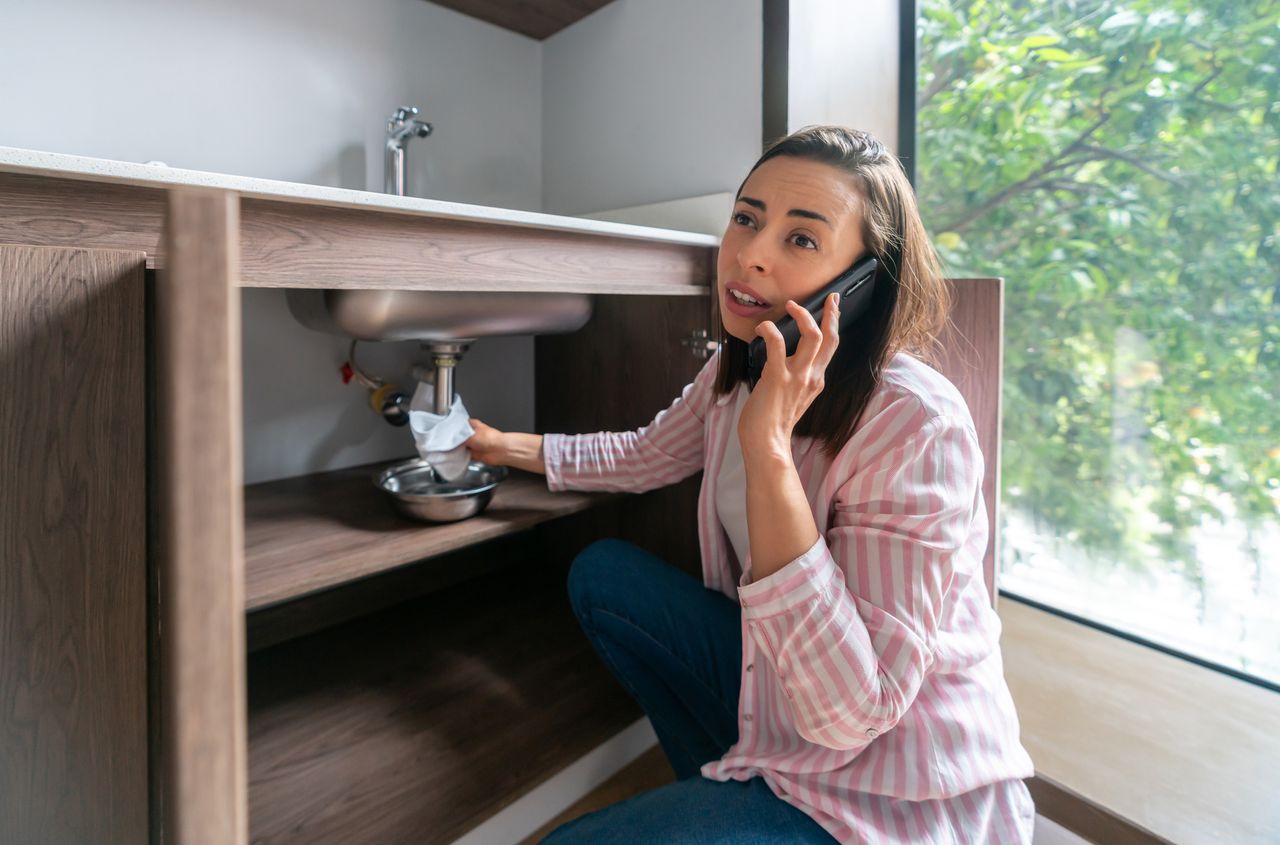
Sometimes water doesn’t just go down the drain. It leaks — and you end up footing the bill for water you never used. The Environmental Protection Agency (EPA) estimates that the average household’s leaks can account for more than 10,000 gallons of wasted water every year.
If you’ve opened your statement recently and noticed a sudden spike, you may be wondering how to dispute a high water bill. The good news is, many cities and municipalities recognize that leaks happen, and they often have programs in place to help customers recoup some of the cost.
Recovering money from a leak adjustment doesn’t always happen automatically — you may have to request it, provide proof of repairs or follow a local dispute process. But if you’re willing to make the call and provide documentation, you might be able to recover some of that ill-spent money.
Water utility agencies across the United States, through goodwill policies or because of government regulations, offer customers a way to recover money they lose when a toilet runs, a lawn-sprinkling system bursts, a pipe leaks and other scenarios that cause money to needlessly fall through your hands like . . . water.
Depending on your water utility's policy, you could recover all or some of that lost money. You may be able to seek leak refunds only one time, once or twice every 12 months, or once every two years.
"It's something the larger utilities are willing to do in an effort to maintain good relations with their customers," said Deirdre Mueller, public affairs manager of the Denver-based American Water Works Association, a trade group representing 3,500 of the nation's metropolitan water providers. "I suspect smaller utilities are less likely to do this simply because their financial situations tend to be a bit tighter."
Many utilities offer refunds
We found many water utilities — large and small — in the United States that have either mandated water leak adjustment policies or ways for customers to submit "courtesy leak adjustment" claims.
"It's really a public benefit, particularly here in California, with the drought we have," said John Tang, vice president of government relations and corporate communications at San Jose Water Co. "It's an incentive to try to motivate customers to fix a leak."
To recover one-time water losses, contact the agency’s customer service department or fill out a form on the agency's website. Proof of repair must be submitted (a plumber's bill or receipts for parts purchased by the homeowner) or some municipalities use meter readings.
The New York City water department doesn’t require written proof if the property is hooked-up to an automated meter reader (AMR).
The utility then will reimburse some percentage of the overage caused by the leak in that month. The utility will review the last few months' bills to measure the extent of the overage in the month when the leak occurred.
Leak location matters
The location of the leak can impact the amount of refund you are eligible to receive. Some leaks are categorized as underground, or an outdoor leak that does not go into the sewer system or a leak that does go into the sewer system (such as a toilet leak.)
City of Concord Water Resources, in Concord, North Carolina, takes a proactive approach by automatically enrolling customers in its Water Loss Protection Program. It costs about 50 cents per month. The program provides a 100% leak adjustment one time over a 24-month period. Customers can opt-out, but if they choose not to participate in the program and then end up seeking a leak adjustment later on, it won't be provided.
The Beaufort-Jasper Water & Sewer Authority serves 70,946 customers in the Lowcountry region of South Carolina. "In the past 12 months, we have refunded over 600 accounts for leak adjustments," Pamela Flasch, director of public affairs, told Kiplinger. She added that "the most common is a toilet leak from a faulty flapper or chain. Also, broken hoses and pipes from extreme cold weather, aging pipes, and digging or hitting the pipes are common."
This water authority found a smart way to track leaks and alert customers. It has offered customers the use of an app called EyeOnWater. The app lets customers connect to their utility accounts and allows them to see how much water they're using and, most importantly, can alert users to possible leaks on their property. "In an area with a lot of vacation homes it's especially helpful," Flasch said, because the app can alert homeowners anywhere their smartphones work.
Thousands of homeowners across the country take advantage of such policies every year. Denver Water, for example, had 1,290 claims in 2021 and 1,786 claims in 2022, Jimmy Luthye, media relations coordinator, told Kiplinger.
West Virginia American Water provides what it calls a priority leak adjustment that covers only hidden leaks, said Laura Jordan, external affairs manager. That's part of the agency's policy as mandated by the state's public service commission.
"Typically, it's most often a service line, or plumbing in the wall, with a leak not detected until the customer gets their next water bill and sees exceptionally high usage," Jordan said.
So if you simply have a leaky toilet in the Mountain State, you're on your own regarding that water — and money — going down the drain.
The bottom line on how to get a refund for a leak
Household leaks can waste more than 1 trillion gallons annually nationwide, according to the EPA. That's equal to the annual household water use of more than 11 million homes. Some of the most common types of water loss are toilet leaks, hot water tank leaks and broken pipes.
When you have a leak, promptly and properly repair the leak. This will put you in the best position to seek and receive a refund of the wasted water. Adjustments are typically made once the water authority can confirm that the leak has been repaired and consumption is back to normal.







